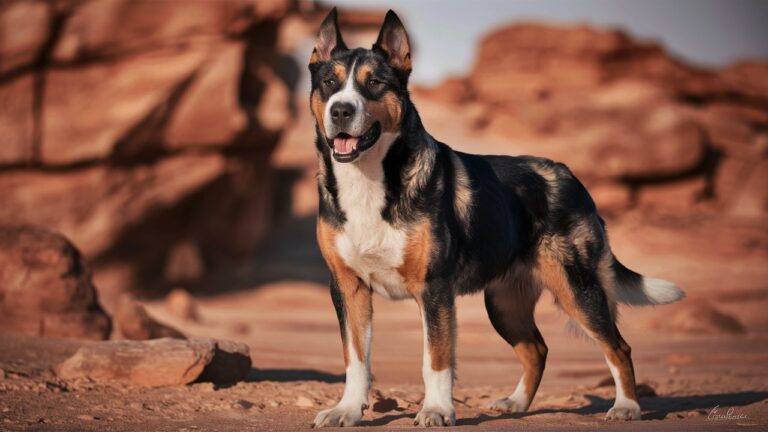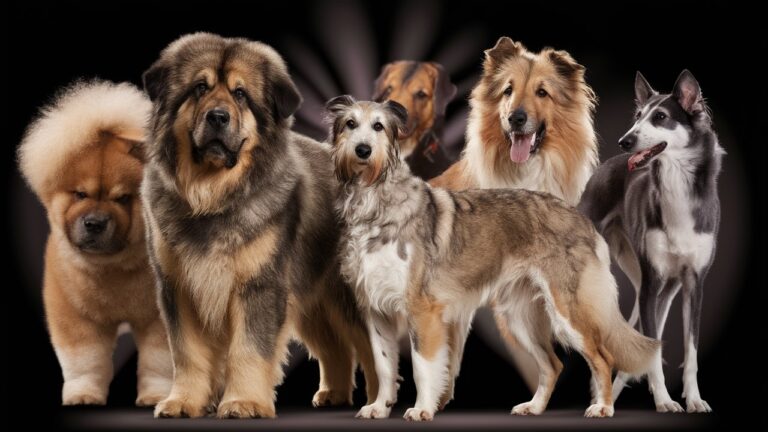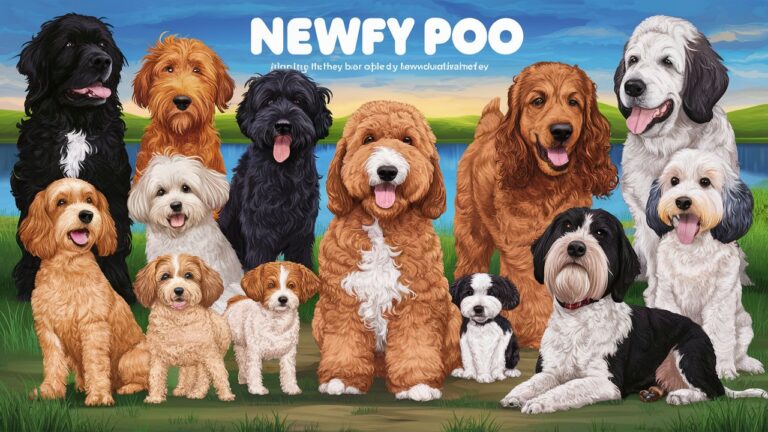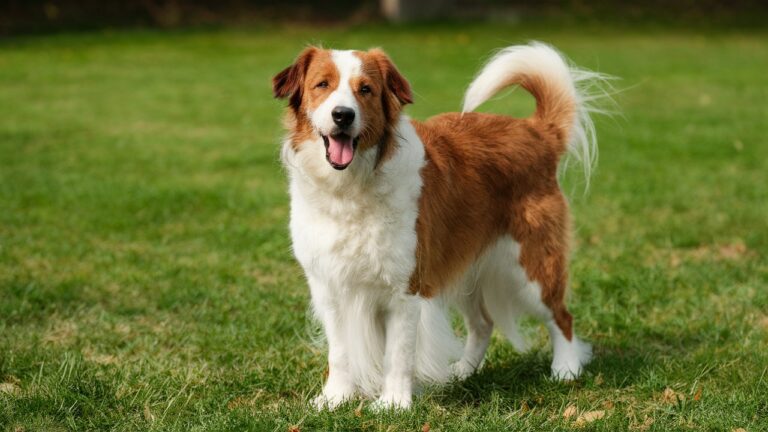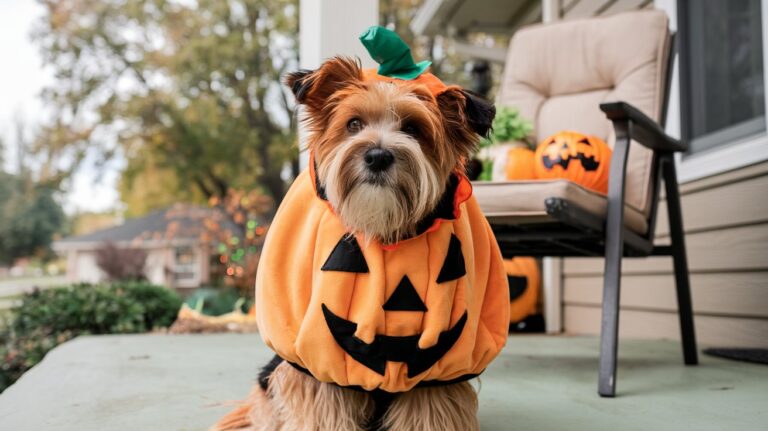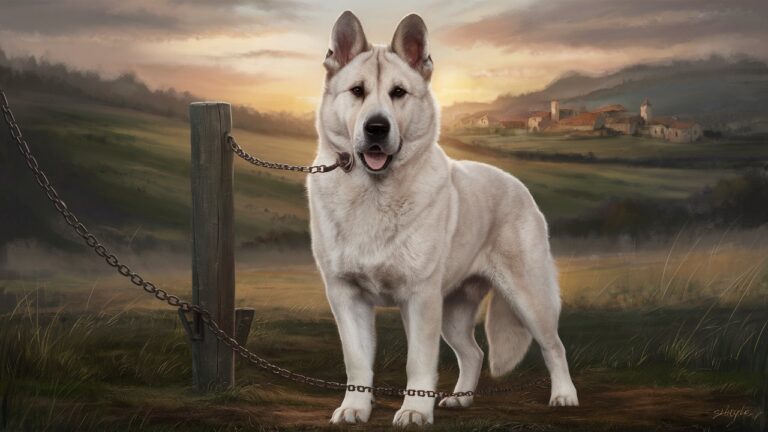Unveiling the Enigmatic Kai Ken: 100% Resilient, Loyal, and Brimming with Spirit
Nestled deep within the dense forests of Japan, a breed of dog with a storied past and a striking appearance roams quietly yet proudly. The Kai Ken, also known as the Tora Inu or Tiger Dog, stands out not only for its unique coat patterns reminiscent of its namesake but also for its steadfast loyalty and innate hunting prowess.
Originating from the mountainous regions of Kai Province (modern-day Yamanashi Prefecture), the Kai Ken holds a special place in Japanese culture as one of the country’s native dog breeds. Its history dates back centuries, where it was revered for its ability to navigate rugged terrains and track elusive game with unmatched skill.
Unlike some more widely recognized Japanese breeds like the Akita or Shiba Inu, the Kai Ken remains relatively lesser-known outside its homeland. However, its distinctive appearance and resilient nature have garnered a dedicated following among enthusiasts worldwide who appreciate its rich heritage and adaptive capabilities.
In this comprehensive exploration, we delve into the captivating world of the Kai Ken. From its origins steeped in tradition to its modern-day roles as a cherished companion and versatile working dog, join us as we uncover the essence of this remarkable canine companion.
Origins and History of the Kai Ken
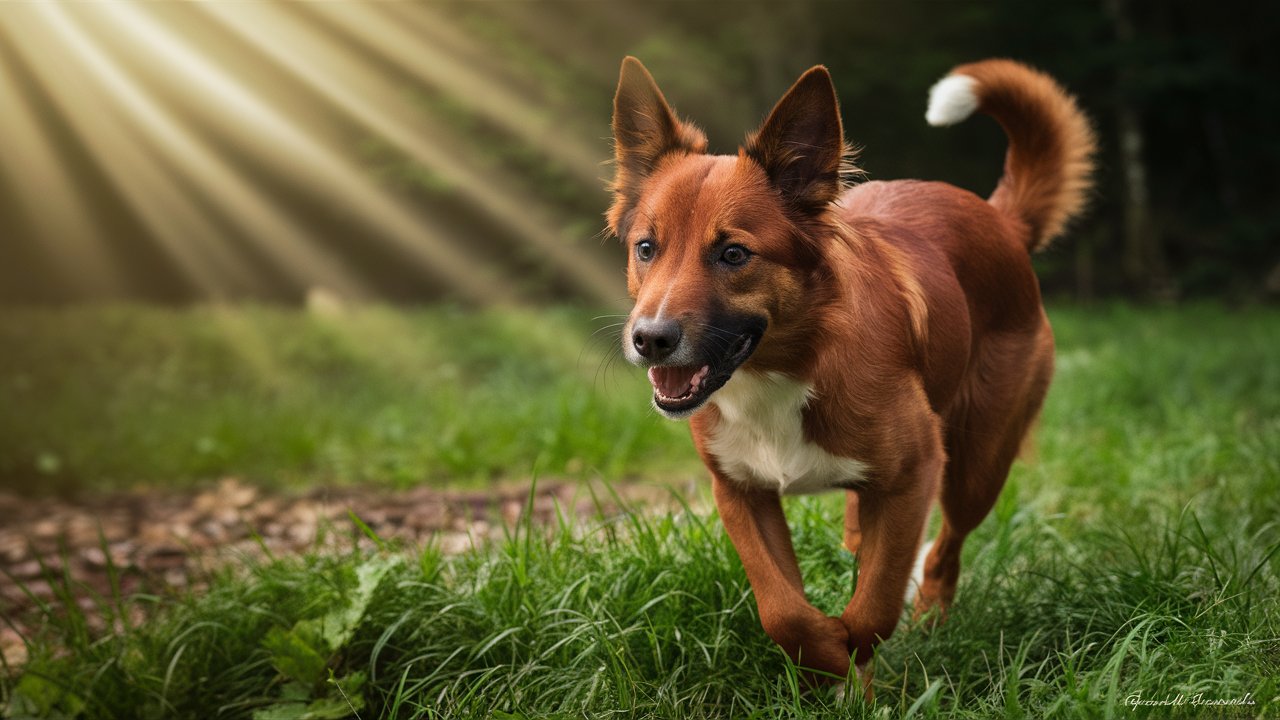
The Kai Ken, also known as the Kai Dog or Tora Inu (Tiger Dog), is a rare and ancient breed native to Japan. Renowned for its distinctive tiger-like striped coat and loyal disposition, the Kai Ken holds a special place in Japanese culture and history.
Ancient Roots and Development
The origins of the Kai Ken can be traced back several centuries to the mountainous regions of Kai Province (modern-day Yamanashi Prefecture) on the main island of Honshu, Japan. Initially bred by the indigenous Ainu people, the Kai Ken was valued for its hunting prowess and adaptability to rugged terrain and harsh climates. These dogs were essential companions for hunting deer, boar, and other game in the dense forests of the Kai region.
Cultural Significance
In Japan, the Kai Ken is revered not only for its hunting abilities but also for its symbolic significance. The breed’s tiger-striped coat pattern is considered auspicious, symbolizing strength, courage, and protection against evil spirits. This cultural significance has contributed to the preservation and admiration of the Kai Ken throughout history.
Conservation Efforts
Despite its historical importance, the Kai Ken faced a decline in numbers during the early 20th century due to socio-economic changes and World War II. Recognizing the breed’s cultural value and unique characteristics, efforts were made to preserve and revive the Kai Ken population in Japan. In 1934, the Kai Ken was designated as a “natural monument” by the Japanese government, acknowledging its status as a living cultural treasure.
Modern Recognition and Preservation
Today, the Kai Ken remains relatively rare outside of Japan but has gained recognition among enthusiasts and breeders worldwide. Dedicated efforts by breed clubs and preservation organizations aim to maintain the breed’s genetic diversity and ensure its survival for future generations. The Kai Ken’s resilience, intelligence, and loyalty continue to captivate those who appreciate its rich history and unique attributes.
Physical Characteristics and Appearance
The Kai Ken, often referred to as the “Tora Inu” or Tiger Dog in Japan, is a medium-sized dog with a robust build and distinctive coat patterns. Here, we delve into its physical attributes that set it apart:
Body Structure and Size: The Kai Ken is classified as a medium-sized breed, typically standing between 18 to 22 inches (45 to 55 cm) at the shoulder. They have a sturdy, muscular build that reflects their heritage as hunting and mountain dogs in Japan. Their bodies are well-proportioned, with a slightly longer than tall stance, contributing to their agility and endurance in rugged terrains.
Coat Coloration and Patterns: One of the most striking features of the Kai Ken is its unique coat coloration, often described as brindle with tiger-like stripes. The brindle pattern consists of a mix of black, red, and white hairs, forming distinct stripes that resemble the markings of a tiger. This tiger-stripe pattern is a hallmark of the breed and varies in intensity and distribution among individuals.
Coat Texture and Weather Adaptability: The Kai Ken’s double coat is weather-resistant, designed to protect them from harsh climates and terrain. The outer coat is straight and dense, providing insulation and durability, while the undercoat offers additional warmth during colder seasons. This coat texture not only enhances their resilience in outdoor environments but also requires moderate grooming to maintain its condition and functionality.
Facial Features: Facially, Kai Kens have a fox-like appearance with a wedge-shaped head and erect, triangular ears that contribute to their alert and attentive expression. Their eyes are medium-sized and almond-shaped, usually dark brown or amber in color, reflecting their keen intelligence and focused demeanor. The muzzle is moderately long and strong, giving the breed a balanced and harmonious facial profile.
Tail and Limbs: The tail of the Kai Ken is set high and carried in a sickle or curled position over the back, adding to their agile and energetic appearance. Their limbs are well-muscled and straight, supporting their agile movement and ability to navigate rough terrain with ease. The paws are compact and rounded, equipped with thick pads that provide traction and stability on various surfaces.
Overall Impression: In summary, the Kai Ken presents a striking visual impression with its tiger-like coat and athletic build. Their unique appearance not only reflects their historical role as hunters and guardians in Japan but also underscores their adaptability and resilience in diverse environments. Whether in the mountains or as cherished companions, the Kai Ken’s physical characteristics embody both functionality and aesthetic appeal, making them a truly distinctive breed.
Temperament and Personality
The Kai Ken is renowned not only for its distinctive appearance but also for its unique temperament and personality traits. Understanding these aspects is crucial for potential owners seeking a compatible companion or working partner.
Loyalty and Bonding: Kai Kens are known for their unwavering loyalty and strong bonds with their families. They form deep attachments to their human companions and are highly protective of their loved ones, making them excellent watchdogs. This loyalty extends to their roles as working dogs, where they demonstrate dedication and reliability in their tasks.
Intelligence and Trainability: Bred as hunting dogs in Japan, Kai Kens possess keen intelligence and a natural instinct for problem-solving. They are quick learners and respond well to positive reinforcement training methods that emphasize consistency and patience. However, their independent nature can sometimes lead to a stubborn streak, requiring firm yet gentle handling to channel their intelligence effectively.
Alertness and Vigilance: With a strong prey drive and acute senses, Kai Kens are naturally alert and vigilant. They are attentive to their surroundings and will alert their owners to any perceived threats or intrusions. This trait makes them valuable as watchdogs or as companions for outdoor activities where their alertness can be harnessed.
Independence and Adaptability: Due to their history as mountain dogs, Kai Kens exhibit a degree of independence and self-sufficiency. They are capable of making decisions autonomously, which can be advantageous in challenging or unfamiliar environments. However, this independence also means they may not always seek constant attention and can entertain themselves when necessary.
Gentleness and Family Compatibility: Despite their hunting background, Kai Kens are known for their gentle and affectionate nature towards family members, including children and other pets when properly socialized. They thrive in environments where they receive companionship and structured interaction, forming strong bonds that endure throughout their lives.
Behavioral Considerations: It’s important to note that Kai Kens may exhibit cautiousness around strangers, which stems from their natural wariness and protective instincts. Early socialization and positive experiences with various people and environments can help mitigate any potential shyness or aloofness.
Personal Anecdotes: Many Kai Ken owners share stories of their dog’s loyalty during challenging times, showcasing their unwavering support and companionship. Whether as a hiking companion or a comforting presence at home, Kai Kens often leave a lasting impression with their unique blend of intelligence, loyalty, and independence.
In conclusion, the Kai Ken’s temperament and personality make it a versatile and devoted companion for those willing to appreciate its independent spirit and steadfast loyalty. Understanding and nurturing these traits can foster a fulfilling relationship built on mutual respect and admiration.
Caring for a Kai Ken
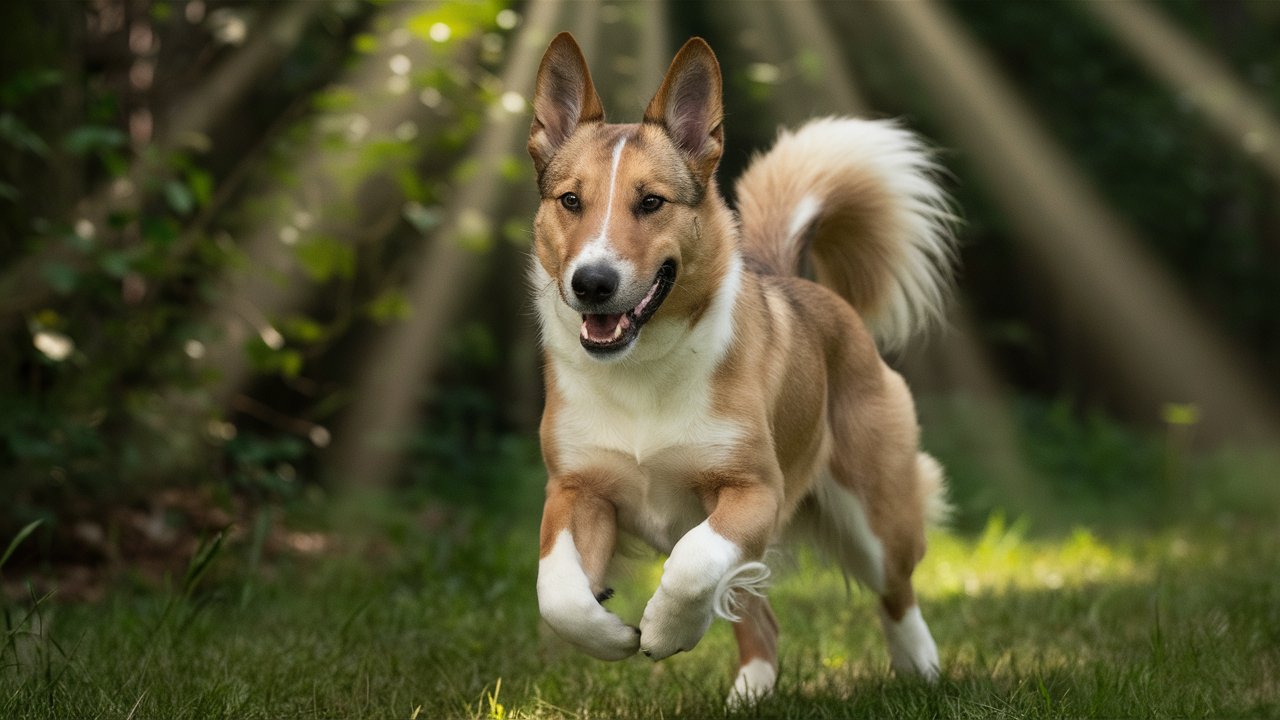
Caring for a Kai Ken involves understanding their unique needs in terms of diet, exercise, grooming, and overall health maintenance. Here’s a detailed guide to ensure your Kai Ken remains happy and healthy:
Diet and Nutrition: Providing a balanced diet is essential for the health and well-being of your Kai Ken. Choose high-quality dog food that is appropriate for their age, size, and activity level. Consider a diet rich in protein to support their muscular build and energy needs. Monitor their food intake to prevent overfeeding, as Kai Kens can be prone to obesity if not managed properly.
Exercise Requirements: Kai Kens are active dogs with a natural inclination for physical activity. Aim for daily exercise sessions that include brisk walks, jogging, or interactive playtime. They enjoy mental stimulation as well, so incorporate puzzle toys or training exercises to keep them engaged. Adequate exercise not only maintains their physical health but also helps channel their energy in a positive manner.
Grooming Needs: The Kai Ken’s double coat requires regular grooming to keep it in optimal condition. Brush their coat weekly to remove loose hair and prevent matting, paying extra attention during shedding seasons. Bathing should be done as needed, using a mild dog shampoo to preserve the natural oils in their coat. Trim their nails regularly to prevent overgrowth and check their ears for signs of infection.
Dental Care: Maintaining good dental hygiene is crucial for your Kai Ken’s overall health. Brush their teeth regularly with a dog-specific toothpaste and toothbrush to prevent plaque buildup and gum disease. Providing dental chews or toys can also help keep their teeth clean and gums healthy.
Health Monitoring: Schedule regular veterinary check-ups to monitor your Kai Ken’s health and detect any potential issues early on. Vaccinations, parasite control, and routine screenings are important aspects of preventive care. Be aware of common health conditions in the breed, such as hip dysplasia and eye disorders, and discuss any concerns with your veterinarian promptly.
Environment and Safety: Create a safe and comfortable environment for your Kai Ken at home. Ensure they have access to shade and fresh water during hot weather, as they can be sensitive to heat. Secure your yard with a fence to prevent them from wandering, as their curious nature may lead them to explore.
Training and Socialization: Start training and socializing your Kai Ken from a young age to encourage good behavior and adaptability. Use positive reinforcement techniques to reinforce desired behaviors and establish a strong bond based on trust and respect. Expose them to various environments, people, and other animals to promote confident and well-rounded behavior.
Personal Anecdotes: Kai Ken owners often share stories of their dog’s love for outdoor adventures and their strong bond with family members. Their resilient nature and adaptable temperament make them cherished companions in both urban and rural settings, thriving on companionship and engaging activities.
By prioritizing their nutritional needs, exercise regimen, grooming routine, and overall health care, you can ensure that your Kai Ken enjoys a fulfilling and active lifestyle while remaining a cherished member of your family.
Health Considerations in Kai Kens
The Kai Ken is generally a robust and healthy breed, but like all dogs, they are prone to certain health issues that potential owners should be aware of. Understanding these health considerations can help ensure the well-being and longevity of your Kai Ken companion.
Common Health Issues
- Hip Dysplasia: This genetic condition occurs when the hip joint doesn’t develop properly, leading to discomfort and mobility issues. Responsible breeding practices can help mitigate the risk of hip dysplasia in Kai Kens.
- Luxating Patella: This condition involves the kneecap slipping out of place, which can cause lameness and discomfort. Regular veterinary check-ups can help monitor and address this issue if detected early.
- Eye Problems: Some Kai Kens may be prone to inherited eye conditions such as cataracts or progressive retinal atrophy (PRA). Annual eye exams by a veterinary ophthalmologist can help identify and manage these conditions.
- Allergies: Like many breeds, Kai Kens may develop allergies to environmental factors, food ingredients, or parasites. Symptoms can include itching, redness, and skin infections. Working with your veterinarian to identify and eliminate allergens can improve your Kai Ken’s quality of life.
- Gastric Dilatation-Volvulus (GDV): Also known as bloat, this is a serious and potentially life-threatening condition where the stomach fills with gas and twists. It requires immediate veterinary attention and is more common in deep-chested breeds like the Kai Ken.
Lifespan and Longevity
The average lifespan of a Kai Ken is typically between 12 to 15 years, though individual dogs may vary. Providing a balanced diet, regular exercise, and routine veterinary care are essential factors in promoting a long and healthy life for your Kai Ken.
Preventative Care
To help maintain your Kai Ken’s health, consider the following preventative care measures:
- Regular Veterinary Check-ups: Annual wellness exams can help detect health issues early.
- Vaccinations: Keeping up-to-date with vaccinations protects your Kai Ken from common canine diseases.
- Dental Care: Regular teeth brushing and dental check-ups can prevent dental disease.
- Nutrition: Providing a high-quality diet suitable for your Kai Ken’s age and activity level is crucial for overall health.
- Exercise: Regular physical activity helps maintain muscle tone, joint health, and mental stimulation.
Training and Socialization
The Kai Ken, renowned for its intelligence and independent nature, requires specific approaches to training and socialization to thrive as a companion and working dog.
Training Methods Training this dog breed demands patience and consistency due to its strong-willed nature. Positive reinforcement techniques, such as treats and praise, work best to motivate this breed. Start training early to establish good habits and prevent stubborn behaviors from developing. Incorporating mental stimulation through interactive toys and games can keep the Kai Ken engaged and eager to learn.
Challenges in Training Due to their inherent independence, this breed may exhibit a stubborn streak during training sessions. They are known for their problem-solving abilities, which can sometimes lead to them testing boundaries. Understanding their breed-specific traits and adjusting training methods accordingly can help overcome these challenges effectively.
Socialization Early and ongoing socialization is crucial for this breed to develop into well-rounded dogs. Introduce them to various environments, people, and animals from a young age to prevent shyness or aggression. Supervised interactions with other dogs can help them learn appropriate social behaviors and manners.
Tips for Effective Socialization
- Gradual Exposure: Introduce new experiences gradually to prevent overwhelming these dog breeds.
- Positive Experiences: Ensure that social interactions are positive and rewarding to build confidence.
- Consistency: Maintain regular socialization throughout their lives to reinforce good behavior and prevent regression.
Personal Anecdotes An owner recalls how consistent socialization helped their dog, Kiko, overcome initial wariness of strangers. “Kiko was initially cautious around new people, but with patient introductions and positive reinforcement, he now greets visitors with curiosity and a wagging tail.”
Training for Specific Roles Historically used for hunting, Kai Kens can excel in various roles today, including search and rescue, therapy work, and competitive sports. Tailoring training to their innate abilities and providing outlets for their natural instincts can harness their potential effectively.
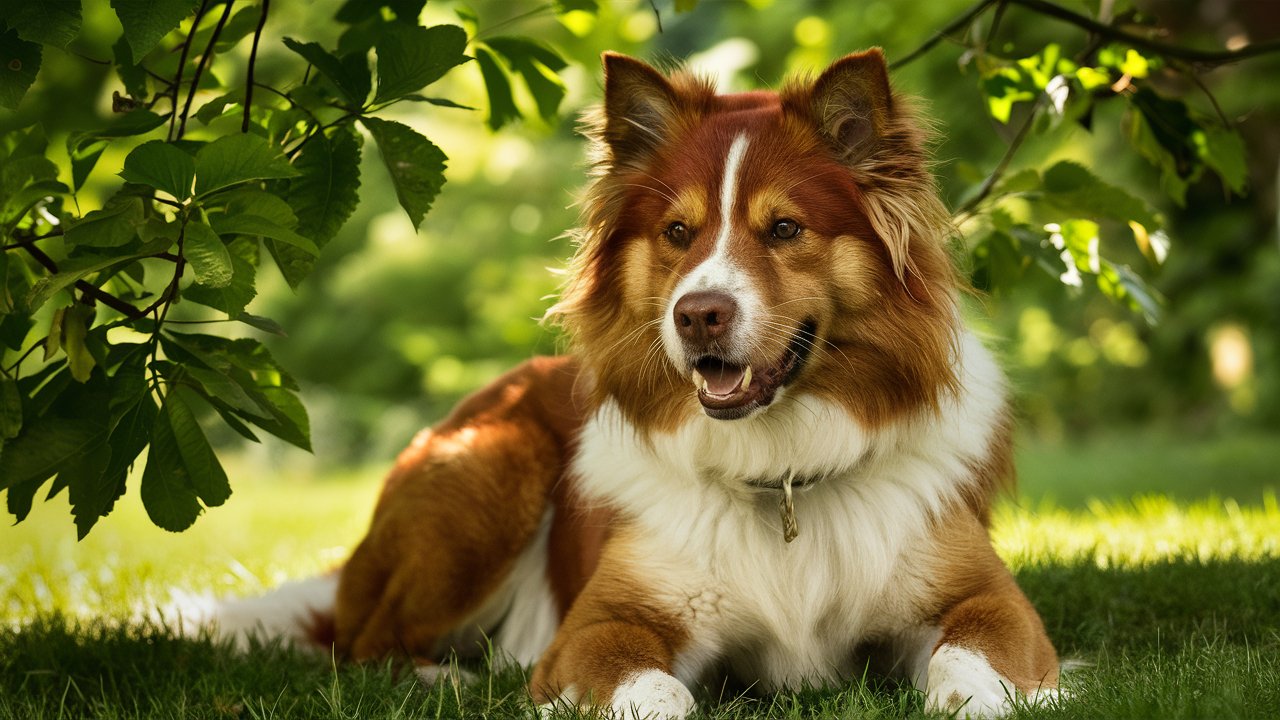
Conclusion
In conclusion, the Kai Ken stands out not only for its striking appearance reminiscent of Japan’s wild tiger but also for its exceptional qualities as a companion and working dog. Originating from the remote mountains of Japan, the Kai Ken embodies resilience, intelligence, and loyalty, making it a cherished breed among enthusiasts worldwide.
Throughout history, this breed has played a vital role as a versatile hunter and guardian, reflecting its deep-rooted cultural significance in Japan. Today, beyond its traditional roles, this dog breed thrives as a beloved family companion known for its unwavering loyalty and affectionate nature.
Unique Characteristics With its distinctive brindle coat and agile physique, this dog breed adapts effortlessly to various environments, showcasing its versatility in both rural and urban settings. Its keen intelligence and independent spirit require thoughtful training approaches that emphasize positive reinforcement and consistency.
Training and Socialization Training to this breed requires patience and understanding of its independent nature. Early socialization is crucial to cultivate a confident and well-mannered dog capable of thriving in diverse social settings. Through positive experiences and consistent guidance, Kai Kens can develop into exemplary companions, demonstrating their adaptability and quick learning abilities.
Health and Longevity While generally healthy, this breed benefits from regular veterinary care and attention to maintain optimal health. Understanding common health concerns and proactive care measures can contribute to ensuring a long and fulfilling life for this remarkable breed.
